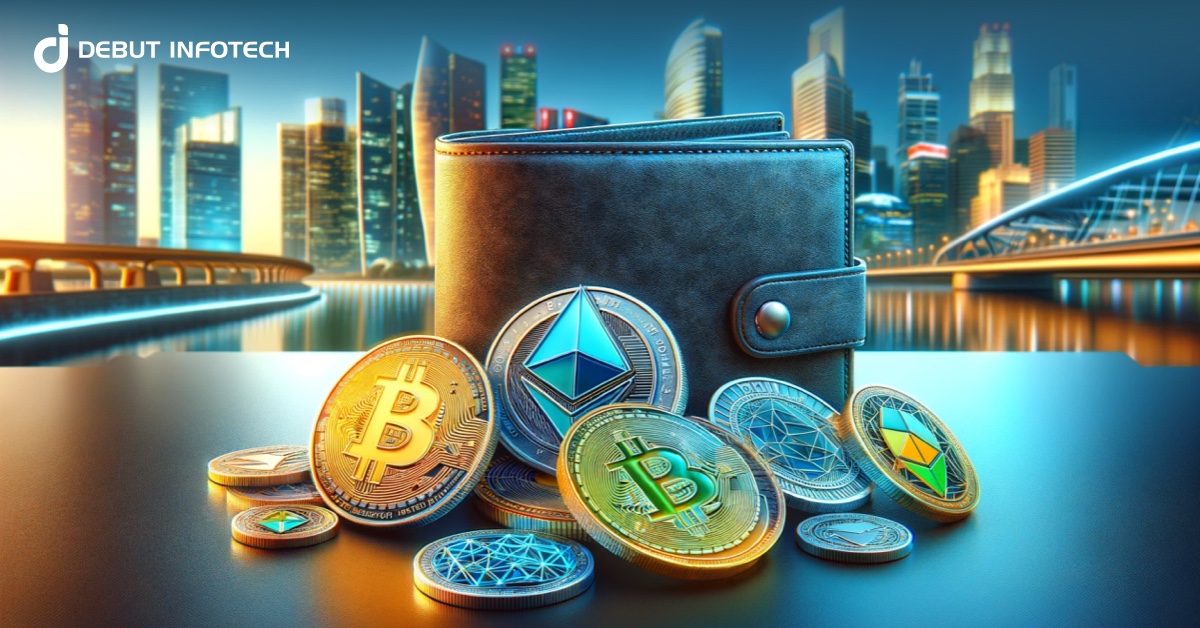Introduction
In the evolving world of digital finance, the concept of a decentralized wallet has gained significant attention. A decentralized wallet is a tool that enables users to store, manage, and transfer their cryptocurrencies without relying on a centralized authority or intermediary, such as a bank or a cryptocurrency exchange. Unlike traditional wallets, where the control of assets is typically held by a third party, we discuss what is a decentralized wallet, and how decentralized wallets work to empower users with complete control over their digital assets, ensuring privacy, security, and autonomy.
How Decentralized Wallets Work
At the core of a decentralized wallet is blockchain technology, a distributed ledger system that records all transactions across a network of computers. This ledger is immutable, meaning that once a transaction is recorded, it cannot be altered. Decentralized wallets interact directly with the blockchain, allowing users to manage their cryptocurrencies independently.
Key Features of Decentralized Wallets
- Self-Custody: One of the most important features of a decentralized wallet is self-custody. Users have full control over their private keys and, consequently, their funds. This eliminates the risk of losing assets due to a hack or bankruptcy of a centralized exchange.
- Privacy and Anonymity: Decentralized wallets do not require personal information to create or operate. This ensures a higher level of privacy and anonymity compared to centralized services, where users must often undergo identity verification processes.
- Security: Since decentralized wallets do not store your private key on a centralized server, they are less susceptible to large-scale hacks. The security of your assets relies on your ability to protect your private key. Additionally, many decentralized wallets offer features like biometric authentication and encryption to further safeguard your funds.
- Interoperability: Decentralized wallets often support multiple cryptocurrencies and can interact with various blockchain networks. This allows users to manage different types of digital assets within a single wallet, making it a versatile tool for crypto enthusiasts.
- No Middlemen: Transactions made using decentralized wallets occur directly between the sender and the recipient on the blockchain. This peer-to-peer nature of transactions eliminates the need for intermediaries, reducing fees and enhancing the speed of transactions.
Advantages of Using a Decentralized Wallet
- Control and Ownership: Users maintain full control over their assets, ensuring that their funds are safe from third-party risks.
- Enhanced Security: The decentralized nature of the wallet reduces the chances of large-scale hacks and provides robust security against unauthorized access.
- Lower Transaction Fees: By eliminating intermediaries, decentralized wallets often offer lower transaction fees, making them more cost-effective.
- Global Accessibility: Decentralized wallets can be accessed from anywhere in the world, provided there is internet connectivity. This makes them ideal for users in regions with limited banking infrastructure.
read also this blog on The Ultimate Guide to Decentralized Cryptocurrency Wallets.
Popular Decentralized Wallets
Some well-known decentralized wallets include:
- MetaMask: A popular Ethereum-based wallet that allows users to interact with decentralized applications (dApps) directly from their browser.
- Trust Wallet: A mobile wallet that supports multiple cryptocurrencies and provides users with complete control over their private keys.
- Exodus: A user-friendly wallet that offers multi-currency support and integrates with hardware wallets for enhanced security.
The Future of Decentralized Wallets
As the cryptocurrency ecosystem continues to grow, the use of decentralized wallets is likely to become more widespread. Innovations in user interface design, security features, and interoperability will make these wallets more accessible to the average user. Additionally, the increasing focus on privacy and data protection will drive more users towards decentralized solutions, as they offer greater control over personal information and digital assets.
Conclusion
Decentralized wallets represent a significant shift in how individuals manage and interact with their digital assets. By eliminating the need for intermediaries and offering enhanced security, privacy, and control, these wallets empower users in ways that traditional financial systems cannot. As blockchain technology continues to evolve, decentralized wallets will play a crucial role in the broader adoption of cryptocurrencies, providing a secure and efficient means for users to manage their assets.
FAQ
Q1: What is a decentralized wallet?
A decentralized wallet is a digital wallet that allows users to store, manage, and transfer cryptocurrencies without relying on a centralized authority. It provides users with full control over their private keys and digital assets.
Q2: How is a decentralized wallet different from a centralized wallet?
A decentralized wallet gives users complete control over their private keys, whereas a centralized wallet typically stores private keys on a third-party server. This means that with a decentralized wallet, only the user can access their funds.
Q3: What are the security benefits of using a decentralized wallet?
Decentralized wallets offer enhanced security as they do not store private keys on centralized servers, reducing the risk of large-scale hacks. However, users are responsible for securely managing their private keys.
Q4: Can I recover my funds if I lose my private key?
No, if you lose your private key, you lose access to your wallet and its funds permanently. It is crucial to securely store your private key in multiple safe locations.
Q5: What are some popular decentralized wallets?
Some popular decentralized wallets include MetaMask, Trust Wallet, and Exodus. These wallets offer multi-currency support and provide users with complete control over their private keys.






Comments